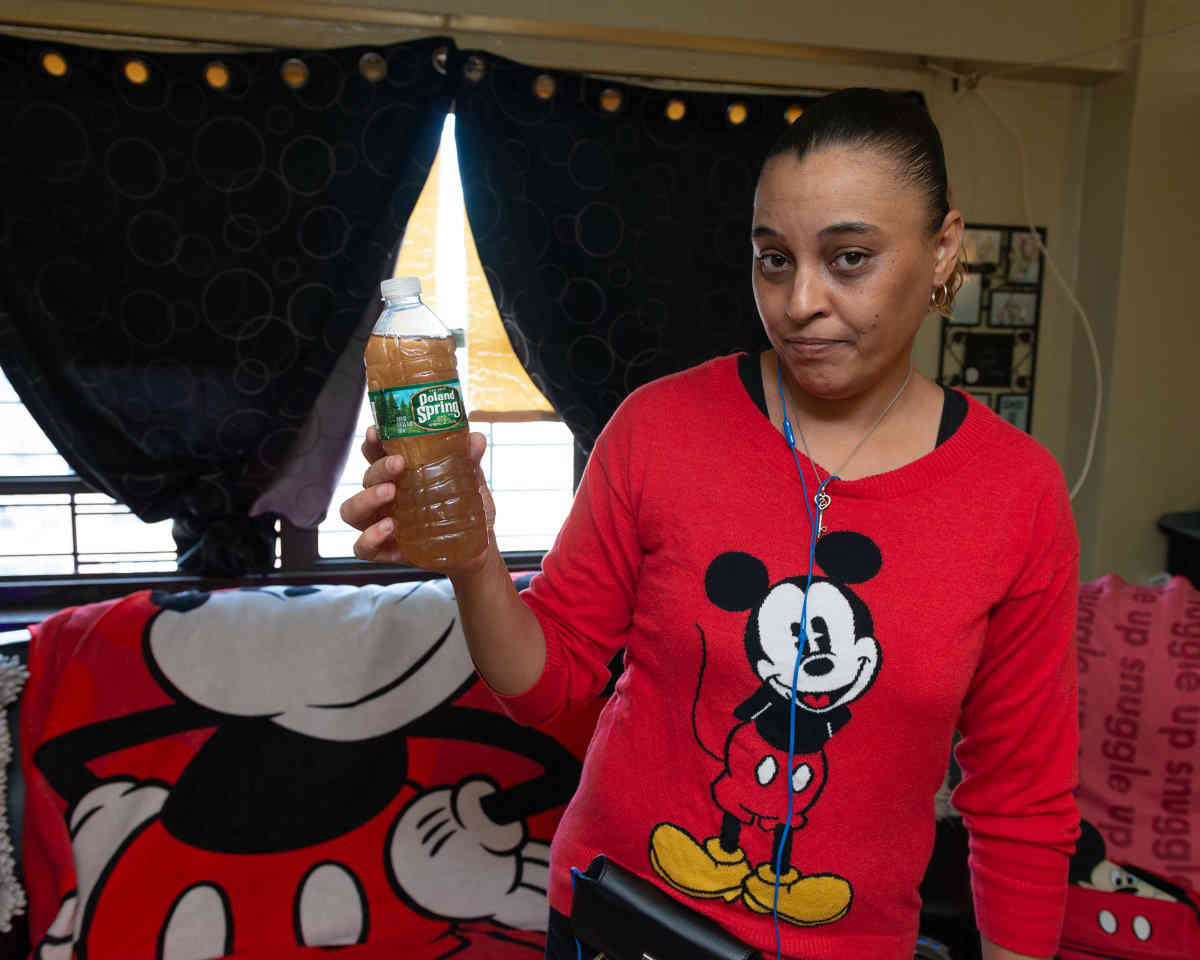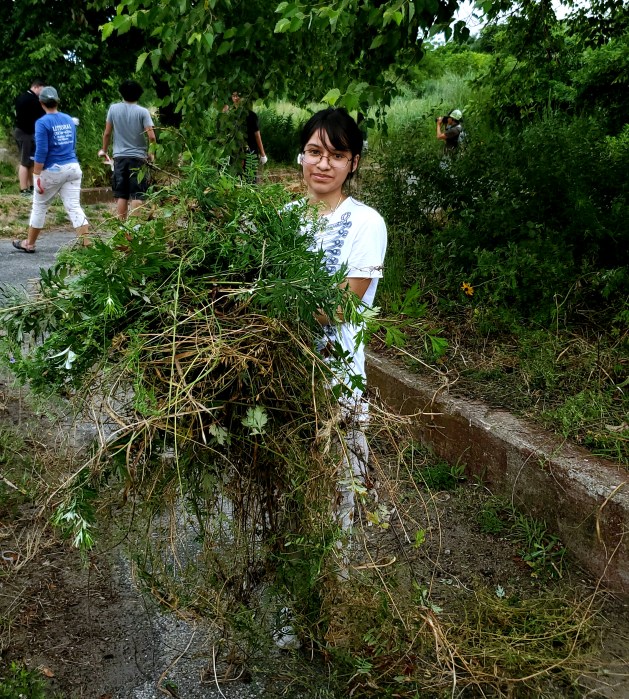Residents of a Coney Island public housing complex say that they have contracted respiratory illnesses and possibly cancerous bacteria due their dilapidated abodes.
“The mold just keeps coming,” said Tracie Baker, 44, who lives in Coney Island Houses with two of her children. “It’s in the bathroom, it’s in the ceiling, it’s everywhere.”
Baker moved into the complex on Surf Avenue between W. 30th and W. 31st streets in 1999, and said that persistent mold in her apartment’s bathroom and bedrooms most likely caused her sons’ asthma, which developed in their infancy. Three years ago, Baker contracted bronchitis, which she attributes both to mold and dust kicked up by nearby construction work.
“I can’t explain how much damage we’ve already been through since being here,” Baker said.
Two floors above Baker, two other children suffer from asthma, and their mother says that she ingested a harmful bacteria from her apartment’s tap water.
“For the past three of four years I’ve been having issues with my body,” said Luz Lozada, 42, who alleges that she began experiencing indigestion, bloating, and stomach pain after drinking water from her faucet about three years ago. Gastrointestinal tests detected H. pylori in her system, a potentially cancerous bacteria that eats away stomach lining, and is usually contracted by drinking contaminated water.
“I ended up buying my own jugs of water,” Lozada said, although she saves a three-year-old jug of murky, brown tap water from her kitchen sink, which she waves in front of housing authorities and elected officials to showcase the filth on tap.
Both Lozada and Baker have filed numerous work orders to address the mold in their apartments and a host of other issues — such as a lack of heating, peeling paint, and mice problems — but say that the Housing Authority is usually slow to respond to the complaints, if it responds at all. A recent study revealed that the agency dismissed more than 47-percent of mold-related work orders as “unfounded” between July of 2017 and 2018, often within five minutes of the complaint’s submission, The City reported. And even when workers do show up, their repairs are often temporary fixes rather than permanent solutions, Lozada claimed.
“They come in here and do band-aid jobs,” she said. Last year, repairmen came to scrub the mildew from the floors in her apartment, but rather than removing the mildewy floor tiles, the workers layered new tiles on top of the old ones, Lozada alleged.
“They were putting tiles on top of tiles,” Lozada said.
Baker and Lozada occasionally withhold their rent when authorities repeatedly dismiss their complaints, and say that housing officials quickly threaten them with eviction notices when the the money doesn’t come in — which deters other residents from protesting the dismal conditions.
“Everyone gets scared of getting evicted,” Lozada said. “They don’t want to speak out.”
And Baker claimed that when she requests to transfer locations, authorities say she needs to front the next month’s rent, which she can’t afford.
“They keep telling me that my rent needs to be at a zero balance. My rent will never be at a zero balance as long as you add the next month’s rent,” she lamented. “So I’m in a Catch-22.”
A NYCHA spokeswoman said that no other residents have complained about the water — despite comments Assemblywoman Mathylde Frontus made at a press conference last week, when she said, “I can’t tell you how many people call me every single day talking about the water. Talking about the quality of life. Talking about the filth. The brown water that’s coming out. People breaking out in rashes. People not feeling safe.”
























